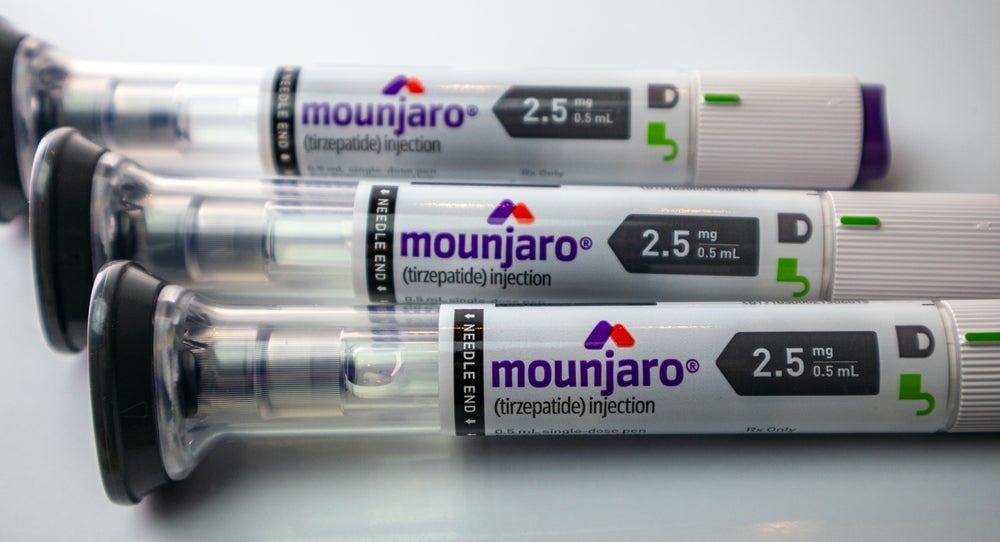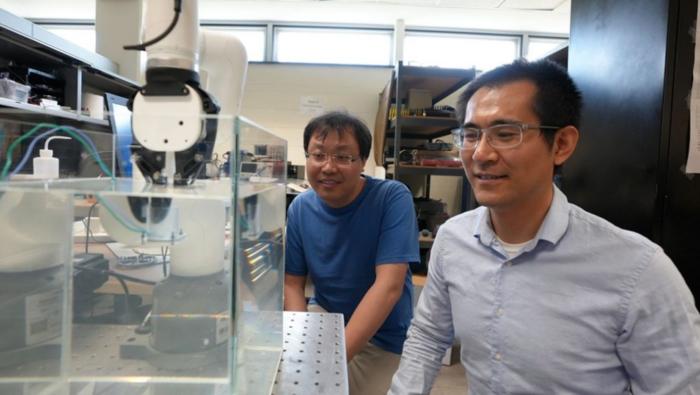Three junior faculty members join Sylvester Comprehensive Cancer Center’s K12 Faculty Scholars at Annual Symposium
MIAMI, FLORIDA (July 25, 2024) – Three junior faculty members at Sylvester Comprehensive Cancer Center, part of the University of Miami Miller School of Medicine, have been named K12 2024 Faculty Scholars. They bring to 16 the number of junior faculty who have joined Sylvester’s prestigious K12 Calabresi Clinical Oncology Research Career Development Program since […]

MIAMI, FLORIDA (July 25, 2024) – Three junior faculty members at Sylvester Comprehensive Cancer Center, part of the University of Miami Miller School of Medicine, have been named K12 2024 Faculty Scholars. They bring to 16 the number of junior faculty who have joined Sylvester’s prestigious K12 Calabresi Clinical Oncology Research Career Development Program since its inception in 2018. The program awards recipients with resources to pursue independent research careers in clinical and translational cancer research.

Credit: Photo by Sylvester (High res photos are available upon request.)
MIAMI, FLORIDA (July 25, 2024) – Three junior faculty members at Sylvester Comprehensive Cancer Center, part of the University of Miami Miller School of Medicine, have been named K12 2024 Faculty Scholars. They bring to 16 the number of junior faculty who have joined Sylvester’s prestigious K12 Calabresi Clinical Oncology Research Career Development Program since its inception in 2018. The program awards recipients with resources to pursue independent research careers in clinical and translational cancer research.
The K12 2024 Faculty Scholars include Marcella Kaddoura, M.D., assistant professor of clinical medicine in the Division of Myeloma; Noa Holtzman, M.D., assistant professor of clinical medicine in the Division of Transplantation and Cellular Therapy; and Gretel Terrero, M.D., assistant professor of clinical medicine in the Division of Medical Oncology.
Beginning Sept. 1, the three K12 Scholars will embark on a two-year, intensive training program funded by the National Cancer Institute (NCI), which supports fewer than 30 K12 programs nationwide.
Kaddoura’s research focus is computational oncology in multiple myeloma, which has limited precision medicine treatment options and is incurable. Using patient samples from clinical trials, she will identify genomic patterns that predict response or resistance to targeted multiple myeloma therapy. Her goal is to improve the use of existing therapies and discover new drug targets. In the long term, she will use these findings to develop and test a more robust, genomic-based biomarker for venetoclax sensitivity in the clinical space through further investigator-initiated trial development, allowing patients to receive less toxic and more effective treatment options.
Holtzman’s research aims to improve outcomes for elderly patients with acute myeloid leukemia undergoing hematopoietic stem cell transplantation (HCT). Her research will focus on immunotherapeutic strategies to leverage natural killer cell reconstitution after HCT to strengthen the transplant’s graft-versus-tumor effect and prevent relapse. This is especially important for older adults, who can only tolerate reduced-intensity transplant regimens. Holtzman will also perform comprehensive geriatric assessments to better define frailty measures in this population, providing a more accurate prediction of transplant outcomes than chronologic age for hematologic malignancy patients.
Terrero’s research centers on understanding the unique tumor microenvironment and genomic characteristics of pancreatic adenocarcinoma (PDAC). She is studying the clinical utility of circulating tumor DNA (ctDNA) to recognize the need to adjust frontline therapy in the treatment-naive metastatic PDAC.
The emergence of liquid biopsy techniques, particularly those focusing on ctDNA, represents a promising avenue for personalized medicine in oncology. Dr. Terrero aims to tailor treatment strategies by leveraging the genetic information contained within ctDNA, with the goal of improving outcomes for patients facing this aggressive malignancy.
The three physicians will receive dedicated time for research, optimal mentorship, formal education and practical experience in developing hypothesis-driven clinical trials. The goal of their work is to improve cancer care delivery and patient outcomes, with an emphasis on serving the needs of Sylvester patients.
“With the unwavering support of Sylvester’s director, Stephen Nimer, M.D., and our dedicated leadership team, we are providing early-stage physician investigators with the time, support and resources to pursue innovative, impactful science, ultimately leading to better patient outcomes,” said Alan Pollack, M.D., Ph.D., K12 chair of radiation oncology at Sylvester and grant principal investigator.
“We are extremely proud to be among this select group, recognized for our commitment to training the next generation of leaders in clinical and translational cancer research,” Pollack added. “This year’s scholars, who represent three divisions in the Department of Medicine, impressed us with their passion and potential to advance oncology research.”
Read more about Sylvester’s K12 Scholars program on the InventUM Blog and follow @SylvesterCancer on X for the latest news on its research and care.
# # #
What's Your Reaction?


































